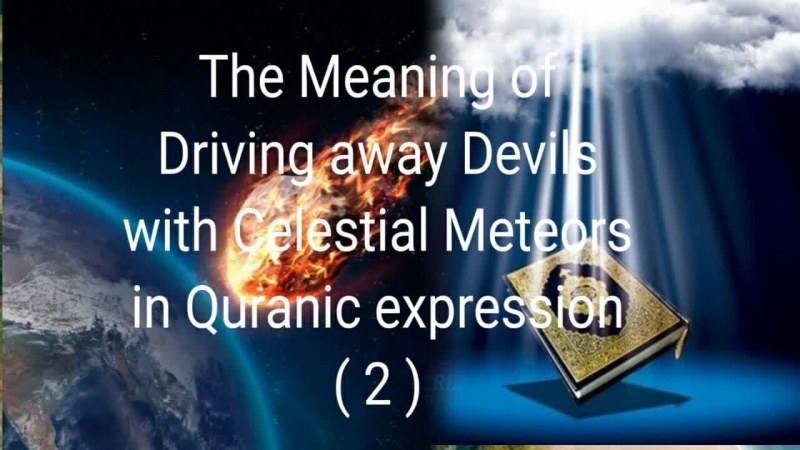- In verses 16-18 of Surah Hajar, the Qur'an talks about the "protected towers" in the sky, which God protects them from the influence of "demons" with the "meteor". Is this statement consistent with new science and our understanding of meteorites?!

Quran and Science
Quran and Science
Click to Previous Part
We read a similar interpretation in verses 16, 17 and 18 of Surah Hajar:
We have set constellations in the heavens and made them pleasing to the beholders. and guarded them from every stoned satan. Except for he who steals the listening and is then pursued by a visible flame.[1]
We also read in verse 9 of Surah Jinn:
There, we would sit to eavesdrop, but now an eavesdropper finds a flame in wait for him.[2]
The meanings of some words mentioned in these verses:
Before answering the contradiction that may appear between this Qur'anic statement and the findings of astronomy, it may be appropriate to review the meaning of some words mentioned in these interpretations of the Qur'an.
"Khatfa"[3] means to steal something quickly.[4] "Shahab/Meteor"[5] originally means a flame that shoots out from a burning fire, and the fiery flames that are seen in the sky in the form of a continuous line are also called "Meteor". We know that these are not stars, but are similar to stars. These are pieces of small stones that are scattered in the space. When they are in the area of the earth's gravity, they are attracted to the earth, and due to the speed and intensity of their collision with the air around the earth, they are ignited. "Saqib" means penetrating and piercing.[6] This description seems to mean that this "meteor" pierces the eye plate due to intense light and penetrates into the human eye. Here, it refers if it hits any creature, it pierces it and sets it on fire.[7], [8]
[1] Quran (15: 16-18)
وَلَقَدْ جَعَلْنَا فِي السَّمَاءِ بُرُوجًا وَزَيَّنَّاهَا لِلنَّاظِرِينَ. وَحَفِظْنَاهَا مِنْ كُلِّ شَيْطَانٍ رَجِيمٍ. إِلَّا مَنِ اسْتَرَقَ السَّمْعَ فَأَتْبَعَهُ شِهَابٌ مُبِينٌ.
[2] Quran (72: 9)
وَأَنَّا كُنَّا نَقْعُدُ مِنْهَا مَقَاعِدَ لِلسَّمْعِ فَمَنْ يَسْتَمِعِ الْآنَ يَجِدْ لَهُ شِهَابًا رَصَدًا.
[3] خطفة
[4] Al-Qur'an Vocabulary, Ragheb Esfahani, p. 286.
[5] شهاب
[6] Ibid, P. 173
[7] Tafsir al-Nomonah, Makarem Shirazi, vol. 19, p. 19.
[8] Translated: https://makarem.ir/maaref/l/0429069



